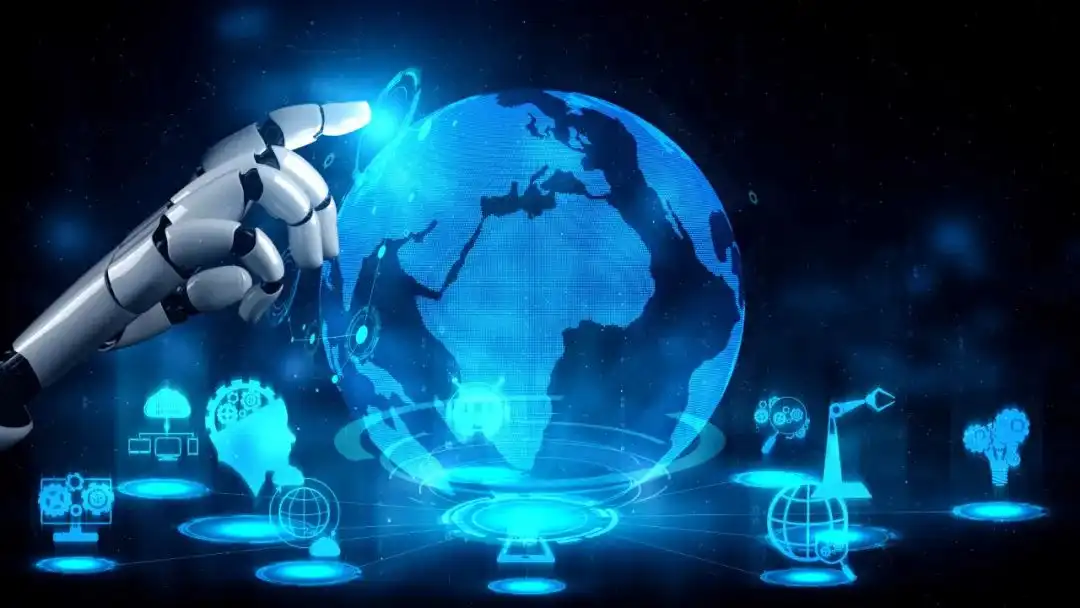The "singularity" of artificial intelligence is close at hand, and human society is ushering in new changes

In the short term, the commercial application of artificial intelligence is still on the way, and its integration with the industry needs to be improved. Judging from the current progress of artificial intelligence, companies cannot fully rely on artificial intelligence for decision-making. Therefore, we must pay attention to the business model of artificial intelligence in industrial applications, so that when combined with the industry, artificial intelligence can save costs and improve efficiency for enterprises, rather than just labeling the industry as high-tech.
■ Zhang Yiming
From talking ChatGPT to Wensheng video software Sora, to AIFC (Artificial Intelligence Driven Scientific Research), the surging artificial intelligence has shown the potential to trigger a new round of scientific and technological revolution. Countries around the world are increasing investment, trying to seize the commanding heights of a new round of scientific and technological innovation.
Every scientific and technological revolution in history has brought great progress to human society. With the recent rapid development of artificial intelligence, the time for the arrival of the "singularity" of science and technology may be greatly shortened. At the 2024 Annual Meeting of the Boao Forum for Asia held not long ago, many experts on artificial intelligence said that the "singularity" of science and technology may come in the next three to five years.
The so-called "singularity" of science and technology refers to the point in time when technological growth becomes uncontrollable and irreversible, leading to unforeseen major changes in human civilization. Artificial intelligence is expected to become the fuse that detonates the "singularity". With the widespread application of AIFC in various industries in the future, artificial intelligence from multi-mode, multi-test, and embedding will be expected to be deeply integrated with machines, thus triggering tremendous changes in human society.
Artificial intelligence is not a new word. Artificial intelligence has gone through four stages of development in history. The first is the rule calculation stage, the second is to enter the expert system stage, the third is to enter the deep learning stage similar to Alpha-Dog, and the fourth is the formation of a large model and a new generation of artificial intelligence after the release of Ope-nAI. leapfrog development stage. Current technology has been able to intelligently generate videos, generate music and even generate code. It has entered the stage of weak artificial intelligence and has entered the stage of strong artificial intelligence, which will have a significant impact on technology, products and even industrial ecology.
Previous scientific and technological revolutions have shown that technological progress has always suddenly accelerated at a certain stage at a speed unexpected by humans. Artificial intelligence has also gone through a similar process and will eventually become a well-known disruptive change.

In 2017, there was a survey of artificial intelligence experts. At that time, most artificial intelligence experts predicted that the technological "singularity" would occur between 2045 and 2090, with 2060 being the most likely year. Since the beginning of this year, more and more artificial intelligence experts have greatly shortened their judgment on the arrival time of the "singularity", mainly due to the rapid development of the technical level in the past two years, especially the large amount of manpower and material resources brought to artificial intelligence. With the changes brought about, a better version of artificial intelligence can be seen almost every month or even every week.
However, although the pace of development is fast, artificial intelligence based on the computing power of large models needs to be supported by a large amount of data, a large amount of computing power, and a large amount of energy. Currently, it still faces some bottlenecks, such as large model computing power. The limited expansion of learning and energy supply will limit the application scope of artificial intelligence.
The current status quo is not impossible to break through. The currently recognized view is that artificial intelligence will rush to quantum computing. In the future, quantum computing, nuclear fusion and artificial intelligence will form a mutually reinforcing relationship with each other, creating a synergistic effect, thereby solving the current constraints on artificial intelligence. The practical problem of development has triggered the "singularity" of science and technology.
The future is here. Humanity needs to prepare for rainy days to deal with unknown risks. Countries around the world need to work together and strengthen cooperation to smoothly overcome the many challenges brought by the new round of scientific and technological revolution.
In the short term, the commercial application of artificial intelligence is still on the way, and its integration with the industry needs to be improved. Judging from the current progress of artificial intelligence, companies cannot fully rely on artificial intelligence for decision-making. Therefore, don't be too optimistic about artificial intelligence in the short term. We should pay attention to the business model of artificial intelligence in industrial applications, so that when combined with the industry, artificial intelligence can save costs and improve efficiency for enterprises, rather than just labeling the industry as high-tech.
In the long run, with the rapid development of artificial intelligence, especially the deep integration of artificial intelligence and machines, humans are no longer able to fully predict its capabilities. Therefore, in the long run, we cannot be pessimistic or underestimate the impact and impact of artificial intelligence on human society. At the same time, human beings need to continuously improve their awareness of risks related to them. The accompanying problem is how to make artificial intelligence "go up for good." Countries around the world need to strengthen cooperation to govern artificial intelligence.
Artificial intelligence is only one step away from triggering a "singularity" in technology. At present, the international community has determined the basic principles of artificial intelligence governance, including people-oriented artificial intelligence, focusing on the ecosystem, and security. Countries around the world must respect international laws and improve the governance system of artificial intelligence. The key core link is to find ways to turn existing moral norms into regulatory frameworks recognized by countries around the world, and establish a coordinated intergovernmental cooperation mechanism.
